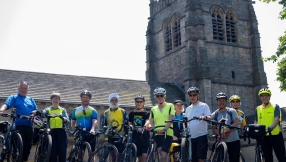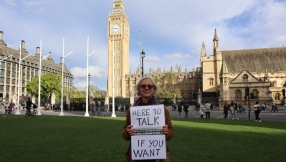
Social action can act as a pathway to growing congregations numerically and spiritually, says a new report from the Church Urban Fund and think tank Theos.
The 'Growing Good' report is three years in the making and focuses on the Church of England, drawing on 350 interviews across 60 parishes, as well as the latest statistical data.
It observes that the Church of England's social outreach has continued to increase despite declining attendance.
The report suggests that the increase in social action by Church of England parishes reflects "an increase in the demand and expectation for it".
"This is the paradox facing the Church of England in 2020: the national church of a nation which is increasingly reliant on its social action and yet less and less spiritually connected to it," the report reads.
While there is no "single, infallible way to grow a church", the report suggests that social action is "one of the key ways" churches can "build wider networks of relationships" that "result in people initiating a faith journey and joining the church".
The report identifies a number of characteristics common to churches that have grown numerically through social action.
"We find that the church grows in number and depth when it is present in and connected to its local area, which may be manifested through its social action," it reads.
"Churches which are visible, or are recognised as being active in giving to their community, are more likely to grow."
Growth can also be seen where there has been "years of focused activity or engagement in meeting the needs of a community".
"Hospitality and generosity are significant for church growth. Social action which is perceived as 'instrumental' or paternalistic often fails to engage people in the wider community," the report said.
"Hospitality and generosity communicate genuine willingness to engage with and invest in the community as it is.
"Congregations that grow through their social action are also likely to be adaptable and embracing of life's complexities.
"Church leaders and congregations demonstrating adaptability in discipleship and worship is therefore critical to cultivating these meaningful relationships."
Providing volunteering opportunities offers a "practical route" into faith for people who were not previously a part of the church community, and who may never have considered exploring faith before, the report continues.
"Volunteering in church-based projects or activities enables people to reappraise churches and their beliefs, and often leads to people reengaging with Christian faith," it says.
"Crucially, social action leads to church growth when it enables congregations to develop meaningful relationships with those they would not otherwise have done, or who might not otherwise have come into sustained contact with the church.
"These relationships are a key mechanism through which the church grows and also through which individuals grow in their own personal faith, but are not always linear or straightforward."
The report makes a number of recommendations to the Church of England, including that it equips churches to think about social action, discipleship and church growth "in an integrated way rather than as three independent concepts".
It also suggests that the Church of England establishes a volunteering service for people of all faiths and none to connect people to local projects and open up new opportunities for churches to form relationships with their local community.
"[W]hile churches can often focus on invitation in terms of social events or discipleship programmes, they should equally see their social action projects as primary sites of invitation and be expectant of the relationships that can grow through it," the report said.
Writing in the foreward to the report, the Archbishop of York Stephen Cottrell said the Church should create more opportunities for social action.
"In a fractured society, where people increasingly only relate to those within their own tribes, social action creates meaningful relationships spanning divisions of race, faith, social class, and political ideology," he said.
"Participation in it, as this report emphasises, has the potential to genuinely transform both individuals and communities.
"These are all small 'signs of the Kingdom' and I believe we should strive for more, as we bring the healing balm of the Gospel to our nation, for this is our vocation."









